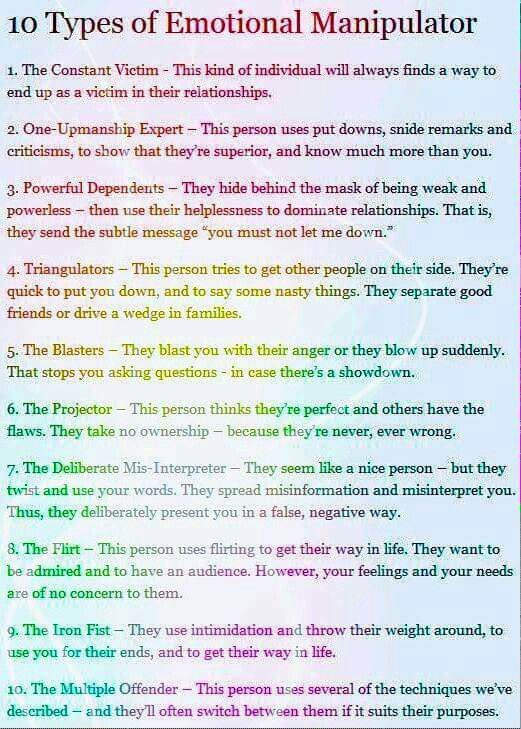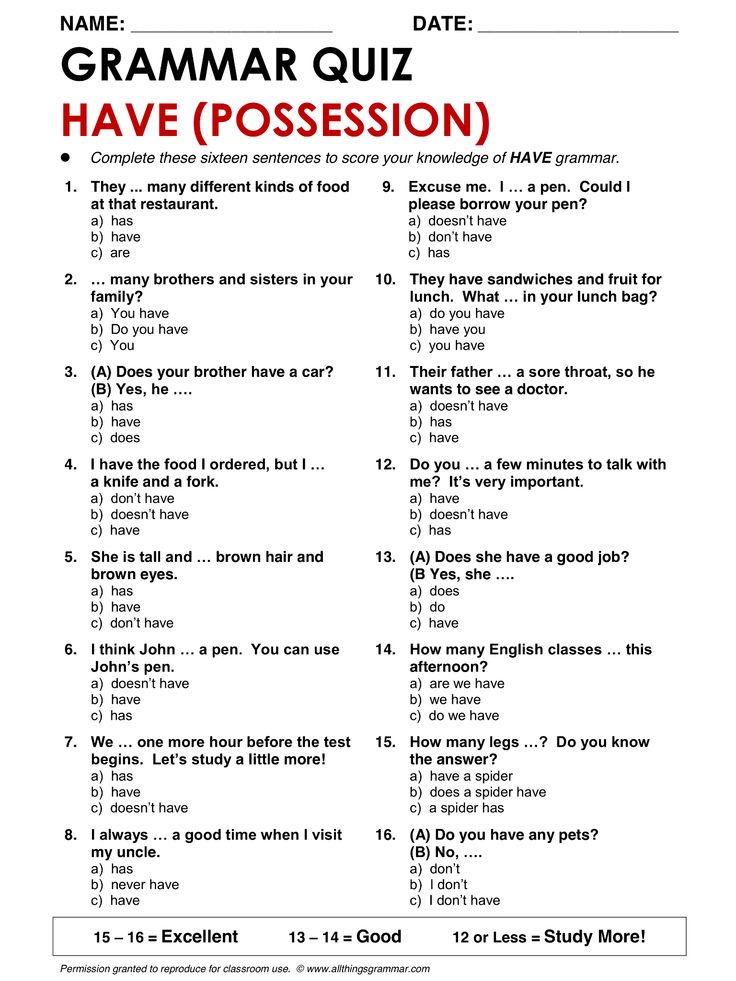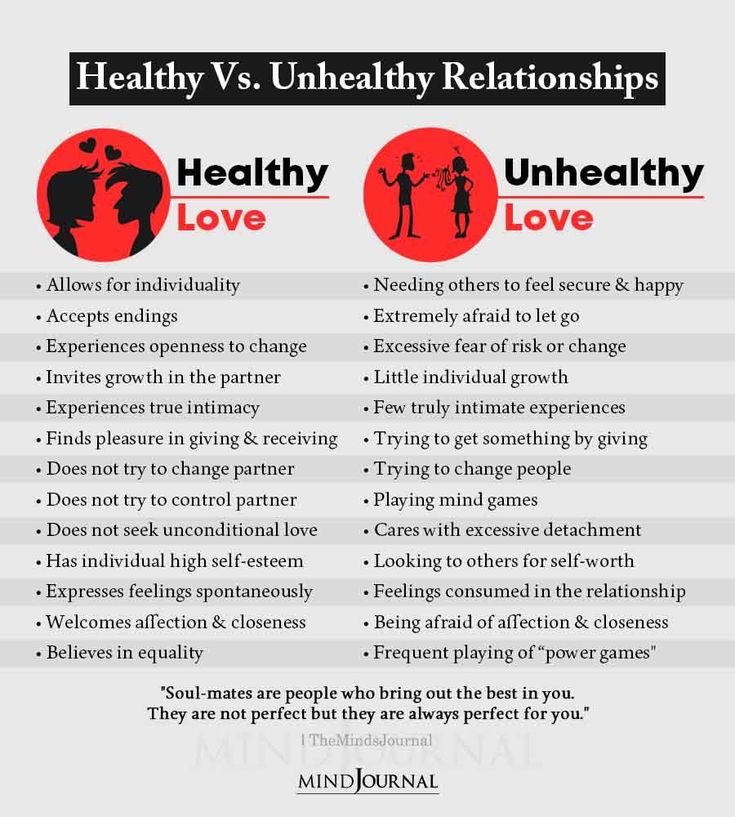Emotional manipulation tactics parents
Manipulative Parents - Signs & Effects
| Types of manipulation | Characteristics of a manipulative parent | Effects | Common signs | How to deal with manipulative parents |
What is a manipulative parent
A manipulative parent attempts to influence their child’s behavior so that they will do or omit to do something they otherwise would not 1.
In most cases, manipulative parents refer to parents who use covert psychological methods to control the child’s activities and behavior in such a way as to prevent the child from becoming an independent adult apart from their control.
Despite its negative connotation, manipulation is an essential survival skill when used correctly. When infants cannot manipulate their parents to provide help by crying, they will not survive.
In everyday life, we all manipulate in some way. Toddlers get candies for using the potty, students get stickers for raising their hands before speaking in class, etc. Using manipulation is human nature.
However, when manipulation is done maliciously, problems occur. It’s this type of manipulation that we find problematic in parents.
Types of manipulation
There are different types of parental manipulation. Common manipulative tactics include 2:
Emotional manipulation by parents
This insidious form of manipulation involves exploiting the bond you have with your parents.
- Love withdrawal – they may say or imply they don’t love the child (unless the child does what they want).
- Guilt induction – they use guilt to get the child to do things or take responsibility for things they shouldn’t have to.
- Silent treatment – they make the child feel invisible and that no one cares about them.
- Gaslighting – they use gaslighting phrases such as “that never happened” to make you doubt your own memory or judgment.
Fear exploitation
Fear is used to manipulate you into doing what they want.
- Coercion – physical punishment, yelling, taking away privileges, and isolating are all coercive manipulation tactics.
- Humiliation – shaming, mocking, putting down, insulting, name-calling, or attacking the child publicly.
- Social comparison – they compare their child with other children to make their child feel inadequate.
Financial manipulation
- Monetary reward – they use monetary incentives as bribes to get the child to do what they want.
- Withholding allowance – they threaten to take away allowance, college funds, or inheritance rights in order to force the child to comply.
Characteristics of a manipulative parent
Different manipulative people have different characteristics, but many manipulative mothers or mothers are narcissistic parents.
Narcissistic parents have inflated egos and a sense of self-importance. They manipulate their children to get what they want damaging their children’s emotional health.
A narcissistic mother, in particular, often manipulates by playing the victim.
Effects of parental manipulation
Manipulative parenting tends to be the worst when it is an insidious form of psychological control that intrudes into a child’s mental and emotional development.
In studies, psychological control strongly predicts youth internalized problems (e.g. depression) and, in some cases, externalized problems (e.g. delinquency), especially in adolescence and preadolescence 3.
- There are always things being pushed on you that you don’t want to do, but you can’t seem to resist.
- Often, the truth is twisted and doesn’t sound right.
- You are often led to doubt your own decisions.
- When things don’t go according to your parents’ wishes, repercussion or retaliation happens.
- You are made to feel guilty about your decisions.
- Your emotions and feelings keep being dismissed.
- You are made to feel that you deserve bad things happening to you.

How to deal with manipulative parents
Dealing with manipulative behaviors from parents can be stressful even as an adult. Here are some steps you can take to protect yourself.
Recognize manipulation when it happens
It is crucial to catch manipulation in the act in order to stop it. Going back a few days later will not help.
However, when you’ve been manipulated for decades, it could be hard to recognize it right away when it happens again. So, be mindful of your interactions with your parents.
Pay attention to how your body reacts, such as when you suddenly feel tense. Your body might recognize when something is out of place even if your cognition can’t.
Call out manipulations
When you do notice being exploited, call it out.
Try to do this calmly. If you are too emotional, your parents may assume the victim role and blame you instead. Furthermore, letting your emotions take over will make it very difficult for you to avoid more manipulative traps.
When calling out the manipulation, state the fact and then name your feelings.
“You said you wanted me to be happy, but all you have done is bring me down. It makes me sad that you constantly use your words to hurt me.”
“You seem to adopt a victim attitude quite often. I feel manipulated.”
“You can believe what you want to believe, but I am sticking with the facts.”
Set healthy boundaries
It is important to set clear boundaries and limits in life and stick to them.
“I need you to treat me with respect. Otherwise, I will have to limit our contact for my own sake.”
While it may be hard to cut ties with a parent you love, it may be necessary for your own mental well-being to keep a distance from a toxic parent.
Get support
Having a network of friends you can turn to for support when you need it is essential. People who have experienced similar issues are a better match than those who have not.
Professional help
An experienced therapist can help you sort out your feelings, confusion, and issues. If you have doubts about being manipulated, they can also help you identify the root cause.
If you have doubts about being manipulated, they can also help you identify the root cause.
Also See: Toxic Mother and Toxic Things Parents Say
References
-
1.
Rudinow J. Manipulation. Ethics. Published online July 1978:338-347. doi:10.1086/292086
-
2.
Buss DM. Manipulation in Close Relationships: Five Personality Factors in Interactional Context. J Personality. Published online June 1992:477-499. doi:10.1111/j.1467-6494.1992.tb00981.x
-
3.
Barber BK. Parental Psychological Control: Revisiting a Neglected Construct. Child Development. Published online December 1996:3296. doi:10.2307/1131780
About Pamela Li
Pamela Li is a bestselling author. She is the Founder and Editor-in-Chief of Parenting For Brain. Her educational background is in Electrical Engineering (MS, Stanford University) and Business Management (MBA, Harvard University). Learn more
Learn more
View all posts by Pamela Li | Website
Signs, Tactics, and How to Respond
Most family dynamics involve some degree of manipulation.
Some manipulative behaviors, like your mother’s yearly guilt trip, are fairly harmless: “I spent 27 hours in labor bringing you into this world, so the least you can do is spend a few hours having a nice holiday dinner with your family.”
In a family with a healthy dynamic, you might crack jokes with your siblings and even recite your mother’s words before she can say them. Sure, she’s making an emotional appeal to get what she wants, but since you’re all on the same page, this tactic doesn’t trigger any negative feelings.
At the end of the day, you know you can directly express your feelings whenever you want.
But family ties evoke a lot of strong emotions, and some people make deliberate use of these feelings. They might, for example, exploit a weakness when they want you to do things you’d rather not do — including things that cause you pain.
The tips below can help you recognize common manipulation tactics and respond effectively.
Manipulation involves an attempt to control someone else.
You can generally boil it down to one common behavior: Someone wants you to give up something — time, a personal possession, autonomy, power, or anything else — for their benefit.
Recognizing manipulation within families can be particularly difficult when the person is a parent, older sibling, or relative who has some authority.
If you believe you’re supposed to do what they say no matter what, you might struggle to challenge this pattern, even in adulthood.
Red flags
You may not recognize manipulation immediately, since it’s often subtle. But you might notice these key signs:
- You often feel tricked or pressured into doing things.
- It seems as if you can’t do anything right.
- It no longer seems possible to say no.
- They often twist the truth.
- You often feel guilty or confused.

- Your efforts never seem good enough.
Invalidation of feelings
Someone who wants you to go along with their desires might try to make you believe your feelings don’t matter.
A family member might invalidate your feelings by:
- not giving you a chance to share
- interrupting or talking over you
- dismissing your concerns
- reprimanding or punishing you for showing emotion
- telling you how you should feel
For example, you tell your mother you won’t attend your grandmother’s birthday party because you know that the cousin who abused and bullied you in childhood will attend.
She replies by commenting on how selfish you are: “Haven’t you forgotten about that by now? It was so long ago. Nothing’s going to happen at a party, so can’t you just be polite for a few hours?”
Her continued attempts to persuade you invalidate the pain and distress you experienced, leaving you hurt by her lack of support.
Over time, invalidation can make you internalize the idea that your feelings really aren’t important.
This belief can then extend to other relationships, increasing your vulnerability to further manipulation.
Emotional blackmail
A family member using emotional blackmail will make a deliberate appeal to your feelings to try and convince you to do what they want.
This tactic follows a clear pattern:
- They make a demand.
- If you resist or outright refuse, they pressure you into giving in. This often involves flattery or threats designed to engage your emotions or sense of obligation.
- When you agree to do what they want, they might “reward” you with kindness and affection.
This won’t last, though. Now they know you’ll go along with what they want if they use the right tactic. So, they likely won’t hesitate to blackmail you again.
Gaslighting
A pattern of gaslighting often leaves you confused, doubting your memory, and questioning your perception of reality. Over time, this manipulative tactic can have a serious impact on your self-perception and mental health.
Someone trying to gaslight you may:
- counter your memories by denying events (“I never said you were stupid. How could you accuse me of that?”)
- insist they told you something important when they didn’t
- pretend to forget they made a promise
- try to convince you something never happened (“Your father never punched any wall. You must have dreamed that.”)
- insist you’re imagining things or lying
Guilt-tripping
People often use guilt to get you to take responsibility for something that isn’t your fault. When you feel guilty, you’re more likely to do what the other person wants. This includes trying to resolve the problem for them.
Guilt isn’t always malicious. In fact, feeling guilty when you’ve done something wrong and someone expresses their feelings to you isn’t necessarily a bad thing.
But when a family member regularly uses guilt to make you feel bad or do things you’d rather not do, this usually suggests manipulation.
Withholding affection
A family member offering conditional love or affection will demonstrate kindness and other caring behaviors only when you do what they want.
When you make a mistake or disappoint them in some way, they may:
- punish and criticize you
- imply they don’t love you
- blame you rather than external circumstances for mistakes or failure
This type of manipulation often involves isolation tactics, such as:
- the silent treatment
- saying no one else cares about you
- threatening other family members with punishment or isolation if they support you or show you affection
Victimhood
Some people manipulate by taking on the role of a victim.
They might blame others for difficulties, downplay their own responsibility, and avoid doing anything to help themselves.
You may also notice they often turn situations around to make it seem as if you’re to blame: “If you hadn’t moved out, I wouldn’t forget to take my medication so often. If I get sick, it’s your fault.”
If I get sick, it’s your fault.”
A pattern of this behavior, often referred to as victim mentality, can involve exaggeration of problems and weaknesses.
These concerns might have truth to them — some people really do keep getting dealt a bad hand. But this behavior becomes manipulative when someone uses these difficulties to earn your sympathy and make you feel as if they can’t function without support, particularly when they make no effort to change their situation.
Aggression or personal attacks
Aggressive manipulation tends to involve more obvious attempts to control your behavior, including:
- shaming or mocking you
- scapegoating, or blaming you when things go wrong
- put-downs, insults, harsh criticisms, and other tactics designed to make you feel inferior
- threats and intimidation
The person trying to manipulate you often rationalizes verbal abuse by saying things like:
- “I’m just telling you these things for your own good.
 ”
” - “You’ll never amount to anything without some tough love.”
- “Learn to take a joke. You won’t get far in life if you’re always so sensitive.”
Shifting the goal posts
This type of manipulation can leave you feeling inadequate and unworthy.
One key sign someone might be doing this is when you can’t seem to meet the goals they set, no matter how hard you try.
But this failure doesn’t stem from your shortcomings; instead, it’s because they set overly demanding criteria, nitpick at tiny mistakes, or add new expectations every time you think you’ve finally succeeded.
Here’s an example:
You want to study abroad over the summer but can’t afford it. Your parents offer to pay half, as long as you do promise to help out with some projects around the house over spring break. You eagerly agree, and you spend your break doing practically everything around the house without any reminders.
When you check in with your parents, they bring up your GPA, even though they hadn’t mentioned anything about grades when making the deal.
They say, “You’re only pulling a 3.0? You must not be studying. College is expensive enough. Why should we pay for you to go party in another country? Bring your grades up first, and we’ll talk about studying abroad another time.”
Dealing with family manipulation and other toxic behaviors can be stressful, to say the least.
When you feel uncertain about how to handle the situation, you might avoid responding at all. This may help you avoid conflict, but it also allows the manipulation to continue.
The strategies below offer some ways to react productively and protect your well-being.
Call out the manipulation
A good first step is to acknowledge that you’re aware of the manipulation.
It’s normal to feel upset or pressured, but remember: That’s how they want you to feel. Try grounding yourself or using breathing exercises to cool down and relax.
Use respectful language and “I” statements to avoid sounding confrontational. This means expressing your own feelings and thoughts, rather than simply making accusations about the other person.
Some examples of things to say include:
- “It’s upsetting when something doesn’t go as planned. I wish things had worked out — but since I wasn’t involved, I have no reason to feel guilty.”
- “We made a deal, and I did everything you asked. When you go back on your word, I feel deceived and disrespected.”
- “I understand you might not remember saying you’d pick me up from the clinic, but I still have your message if you’d like to see it.”
Let them know how it makes you feel
Though good intentions sometimes lie behind manipulation tactics, it doesn’t excuse a person’s behavior. By telling them that their behavior affects you negatively, you can help them realize that manipulation isn’t the answer.
You might try these approaches:
- Acknowledge their perspective. “I know you’re stressed because you have a lot to do for this gathering.”
- Express your anger and hurt in a calm and polite way. “I’ve asked you before not to shout at me.
 When you don’t respect that request, I feel angry and sad.”
When you don’t respect that request, I feel angry and sad.” - Explain how the manipulation affects you and the relationship. “When you lie to get my help, I lose trust in you. I also don’t feel much like helping when that happens.”
Your safety comes first, so if you don’t feel comfortable talking to them alone, bring someone you trust, or try a letter or phone call.
Set boundaries
A boundary clearly states your needs and helps outline the things you will and won’t do.
For example, you might say, “I need honesty in my relationships. If you keep lying, I’ll limit our communication to essential conversations only.”
When you set boundaries with someone, they may accuse you of “withholding” or punishing them, but remember that boundaries exist to protect you first.
They give you an opportunity to decide which behaviors you’ll accept — before any potentially harmful actions take place. Others can then choose to respect your boundaries and continue interacting in a way that works for you.
You can set boundaries for yourself, too. These might help you limit involvement with a manipulative person, such as choosing to leave when they use a certain tactic, or deciding to see them only when others are present.
Boundaries can also help you curb how much you offer someone emotionally. This might mean you avoid sharing details about your personal life with that person.
Avoid isolating yourself
While it’s not always easy to talk about manipulation and other abuse, it often helps to discuss what’s happening with someone you trust — another family member, a friend, a teacher or mentor, or a romantic partner. It can be a huge relief when even one other person understands and offers support.
Avoiding some family members entirely can be difficult. Instead, you might try to prioritize connections with the ones who treat you with sincerity and offer unconditional love and kindness.
Dysfunction in your family doesn’t affect just your immediate well-being.
It can also damage your self-esteem and affect your ability to develop healthy relationships as an adult. It can even show up in your own parenting.
A family counselor or any therapist who specializes in family relationship dynamics can help you (and your family) address problematic behaviors and prevent these long-term effects.
A therapist can also help you navigate ongoing situations by:
- offering guidance on setting healthy boundaries
- exploring positive communication tactics
- teaching skills to cope with distressing feelings
- helping you get comfortable with speaking up for yourself
In therapy, you can get help for depression, anxiety, and other mental health symptoms often associated with toxic family dynamics. A therapist can also help you explore strategies for getting to know people if you find it difficult to open up.
Addressing problematic behaviors with a manipulative family member sometimes improves the situation. If it doesn’t, just remember: You can’t change anyone who doesn’t want to change.
If it doesn’t, just remember: You can’t change anyone who doesn’t want to change.
You might feel a sense of duty toward your family — but in the end, you have to put your own well-being first. You have no obligation to maintain a relationship with someone who continues to hurt you.
Sometimes, loosening (or snipping) your family ties is the healthiest option.
Crystal Raypole has previously worked as a writer and editor for GoodTherapy. Her fields of interest include Asian languages and literature, Japanese translation, cooking, natural sciences, sex positivity, and mental health. In particular, she’s committed to helping decrease stigma around mental health issues.
Manipulative Parents: Three Typical Tactics | PSYCHOLOGIES
25,018
For ParentsTeenagers
Every day parents make choices that affect a child's life. Passive parents allow children to make their own decisions, thereby showing indifference. Overly controlling people try to organize the lives of children in their own way.
Overly controlling people try to organize the lives of children in their own way.
To a certain extent, both passivity and control can be beneficial for child development. There is a time for everything: for example, parents expect a teenager to be responsible for their own hygiene issues, but do not expect the baby to remember to brush their teeth. Unfortunately, realizing that the degree of control over the child decreases as he grows up, some parents may use emotional manipulation in an attempt to restore the former influence. nine0003
A manipulative parent can choose from a variety of tools to influence their child. Behavioral and parenting consultant Daniel Flint cites a recent study that highlights three of the most common techniques.
1. Personal attacks
Manipulative parents try to establish psychological control over their children by lowering their self-esteem. To do this, they:
- blame the child for adult problems,
- don't let him forget past mistakes,
- say he's not a good enough family member,
- reproach him for what they've done and sacrificed for him,
- try to blame him for their feelings.

As an example, Flint suggests considering the following situation: a teenager returns home after the agreed time. The parent greets him with a tirade: “How could you do this to me? Do you know how much I worry, and still came back so late?! It makes me so angry - you just drive me crazy! nine0003
This type of manipulation sends a meta-message that emotions can be used as a means of pressure
At first glance, this reaction does not seem unreasonable at all: parents quite rightly fear for the safety of a teenager. But this adult, perhaps unconsciously, had a psychological influence on the child, blaming him for his emotions. The problem, according to Daniel Flint, is that the parent uses his feelings (to which he has every right) in an attempt to establish psychological control over the child. nine0003
This type of manipulation sends a meta-message that in a family confrontation one can use emotions as an argument or means of pressure. Do not be surprised when a child, having learned a lesson, uses the same trick in the next quarrel: “I could not help it, you made me angry. Of course I ran out and slammed the door! What else was I supposed to do?!”
Do not be surprised when a child, having learned a lesson, uses the same trick in the next quarrel: “I could not help it, you made me angry. Of course I ran out and slammed the door! What else was I supposed to do?!”
2. Devaluation of feelings
Devaluation is a manipulation tactic common in many intimate relationships. When communicating with teenagers, parents interrupt them, complete sentences for them, behave as if they themselves know what their child thinks or feels, and try to change his attitude to events, facts and experiences in the way they need. nine0003
It is difficult to find someone who never manipulates anyone in the manner described above. It's human nature to trust your own feelings more than someone else's. Flint reminds us that this devaluation is more of a self-defense mechanism than an attack. And yet, for adolescents whose identities are just being formed, parental devaluation can be devastating.
Such an attack simultaneously damages the parent-child relationship by establishing an emotional hierarchy (parent's feelings are more important than the child's) and damages the child's sense of individuality—questioning that his feelings are real and important. nine0003
nine0003
3. Deprivation of love
Attachment research shows that children form a deep emotional bond with their parents. The warmth of physical touch in infancy, bonding with a parent, building a sense of security are all part of a common mechanism. As a result of a combination of many factors, as a rule, the relationship between two people is perceived as love.
However, the manipulative parent may use attachment as a means of psychological control. A recent study confirms that many parents punish their disappointed child with love deprivation, avoiding eye contact and stopping talking until the child corrects his behavior. nine0003
As Daniel Flint notes, neither parent really thinks, “How can I use the attachment I formed with my child when he was very young to attack him and force him to do what I want?" Instead, adults first try a lot of other methods of influence.
Even if you were unlucky and raised by a manipulative parent, you are not at all doomed to repeat the same scenario '... Parents feel inadequate, perhaps blaming themselves for missing out on a child, and clinging to whatever might have worked. It seems to them that there is only one option left: to deprive the guilty child of his love. nine0003
Why do parents manipulate? Flint cites the results of a study that revealed the main prerequisites for such behavior of parents: sensitivity to pain and rejection of negative emotions. Offended people offend others. Emotionally abused children are more likely to become parents who emotionally abuse their own children.
But this does not mean that one's behavior cannot be changed. “Even if you were unlucky and raised by a manipulative parent, you are not at all doomed to repeat the same scenario,” the expert is sure. You can work through your own sad experience on your own or as a therapist - and become a more tolerant, understanding and accepting parent for the child. nine0003
About the Author: Daniel Flint is a postgraduate psychologist in the Department of Clinical Psychology.

Text: Elena Sivkova Photo Source: Getty Images
New on the site
"He won't let you go easily": 4 stages of breaking up with a daffodil
"Even if I'm naked, that's not a reason to rape me": confession column
Six books about the war. Holocaust Remembrance Day
“My mother-in-law declared war on me. How to save a marriage?
Why continue to live in times of crisis: for those who have lost the meaning of life
Ghosts of the past: how I lived in Auschwitz - memories of a child of concentration camp prisoners
“I can't keep my interest in anything. I drop everything halfway through”
“It’s inconvenient to ask my husband for money every time, but he doesn’t understand hints”
How can parents manipulate?
- Alphaschool
- Articles
- "Ungrateful!": what to do if parents manipulate?
No matter how hard you try to be honest with yourself and your loved ones, manipulation slips through every family. It's just that somewhere there are fewer of them, and somewhere there are too many. And the manipulator is not always aware that he is doing something wrong. Therefore, phrases like “I suffered for a day to give birth to you, so be kind to spend this evening with your parents” do not always mean that your mother intentionally makes you feel guilty. She may be really offended, she wants to be with you, but you (the victim of manipulation) do not feel better about it. nine0003
Let's see what manipulations are based on, what they are and what to do about it.
What does it look like?
Manipulation implies an attempt to control someone, to force them to act in a particular way. Someone wants you to sacrifice your desires, time, plans for him.
![]()
Source: marieclaire.ru
Recognizing manipulation in the family is quite difficult, especially if such behavior comes from parents. It is common for a child to accept the words of mom and dad as they are, without subtext. In addition, it is very difficult to resist parental authority. nine0003
It is important and necessary to work on not succumbing to the unhealthy influence of others (even if it is a family). Otherwise, you run the risk of being stuck in the image of a victim for the rest of your adult life.
Types of manipulation
Devaluation of feelings
Sometimes, in order to save the interlocutor from his position, the manipulator can devalue his feelings. A family member can:
- interrupt and prevent you from speaking;
- when you call him, switch to someone else; nine0018
- to say that you misjudge the situation;
- recommend to "calm down" and impose other feelings.
For example, you don't want to go to a family party because you are constantly ridiculed there.
Mom or dad replies: “What are you, such a sissy? Moreover, no one makes fun, these are just good jokes. Is it really so hard not to be so selfish for once?”
Such comments hurt: a loved one does not support you, does not understand and does not even try to share your feelings. Devaluation encourages the victim to accept that their feelings are unimportant or wrong. This is fraught with vulnerability in relationships with other people. nine0003
Emotional blackmail
It involves playing good and evil cop. Until you do something, a loved one will be cold and strict towards you, depriving you of love and care. But as soon as you give up, he will reward you with praise and tenderness.
Source: zen.yandex.ru
This tactic follows a clear pattern:
- You are required to do something.
- If you refuse or resist, you can be pressured: cause a feeling of guilt, duty, shame. To get rid of unpleasant emotions, you agree to the terms.
nine0018
- When the job is done, a family member gives you love and recognition.
You may be ignored, cold and unattached until you do what the other person needs. And since any child needs unconditional parental love, he will quickly lose ground.
Having succumbed to manipulation once, you will encounter it again and again. The parent/sibling will learn that you are addicted to care and will take advantage of it. nine0003
Gaslighting
This is a special form of psychological abuse that confuses the victim, makes him doubt his own adequacy. In advanced cases, this can lead to serious mental ailments, a violation of the perception of oneself and the surrounding reality.
Source: marieclaire.ru
A gaslighter can:
- Instill that something seemed to you, but in reality it's not so. Their favorite phrase: "It never happened."
nine0017 Insist that you are hallucinating or delusional, dreaming or dreaming.- Show passive aggression (“accidentally” throw away important papers, break your favorite mug, mock your failures, hurt feelings, etc.
).
"I'm a victim!"
The role of the victim is often used by single mothers who are in dire need of their child's attention. They can manipulate in the following ways:
- pretend not to feel well so that you don't go for a walk, but stay at home; nine0018
- say they will survive a heart attack if you start a relationship with "that girl";
- are asked to come almost every day because they are lonely and have no one to talk to.
Sometimes all this can be true: a loved one can really feel bad, he can be lonely, etc. If this happens regularly, and almost every time you make plans for the weekend, this is manipulation.
What to do?
Working with manipulation is not easy and quite stressful. If you are not sure how to answer the interlocutor correctly, you can generally remain silent: at least avoid an open conflict. nine0003
Source: cosmo.ru
Below we have provided strategies for a productive response to the attacks of loved ones.
![]()
Think about what is happening in general
The first and most important step is to identify the psychological pressure. If you feel confused, hopeless and feel guilty/shame, it means that you are being manipulated.
Your task is to calm down and ground yourself, to look at the situation soberly. You can not remain in negative experiences, this is what the interlocutor seeks. Meditate, go outside for some fresh air, and then return to the conversation. Speak respectfully, calmly and confidently:
- “I understand, Mom, that you gave birth to me in terrible agony. But it was your decision, I am not responsible for it.
- “Dad, if you feel bad, I can call a doctor and he will examine you. But my being at home won't help you."
- “It is a pity that you do not support me in my experiences. But for me they are important, so I will stand by my opinion.
- “You may have forgotten your promise, it happens. But it was, I still have a confirmation SMS.
nine0018
- “It's a pity that in your eyes I always look like a fool who always comes up with something. I'll have to shoot everything on camera 24/7 so that you no longer accuse me of fantasies.
Let them know how you feel
Source: theoryandpractice.ru
Manipulation does not always hide evil intentions. Parents often resort to pressure when they want to protect the child from failure and pain, but this does not justify them. By explaining that this behavior causes you a storm of negative feelings, you will help them change the tactics of communication and influence on you. nine0003
Try the following methods:
- Acknowledge their feelings. "I understand your feelings and I'm sorry you feel them."
- Express your dissatisfaction calmly . “I already asked you not to yell at me. When you don't listen, I feel empty."
- Explain how manipulation works. "I lose confidence in you when you lie to get what you want.
"
Set boundaries
Personal boundaries are the foundation of healthy human relationships. They help you determine what people can and cannot do towards you. If personal boundaries are violated, you will be pressed on, and you will feel like a victim.
You can say: “I am ready to help when I have time for this. But, if you use manipulation again, I will have to limit our communication." A stream of anger may fall upon you, and for good reason: after all, you have ceased to be convenient, and this is unprofitable for the interlocutor. He will press on guilt and shame in the hope of getting you back on track. Your task is to delicately and politely stand your ground, not to enter into conflict. If a person continues to press, you should leave him alone with his indignation, so that he reflects and draws conclusions. nine0003
Try to resolve issues with your parents carefully: mom and dad are alone, no matter how difficult they may be. But your comfort and peace of mind is above all. If you feel that you need to slow down in communication with loved ones, so be it.
Relations with parents
More math lessons and assignments with the teachers of our online school "Alfa". Sign up for a trial lesson now!
Sign up for a free knowledge test! nine0225
By clicking the "Sign up" button, I accept the terms of the User Agreement and Privacy Policy
Our teachers
Raina Rashidovna Akhmerova
Math tutor
Experience (years)
Education: nine0003
Samara State Pedagogical University
Conducted classes:
Form of study:
Remote (Skype)
Elena Ivanovna Kachanova nine0003
Math tutor
Experience (years)
Education:
Vitebsk State Pedagogical Institute.
![]()














